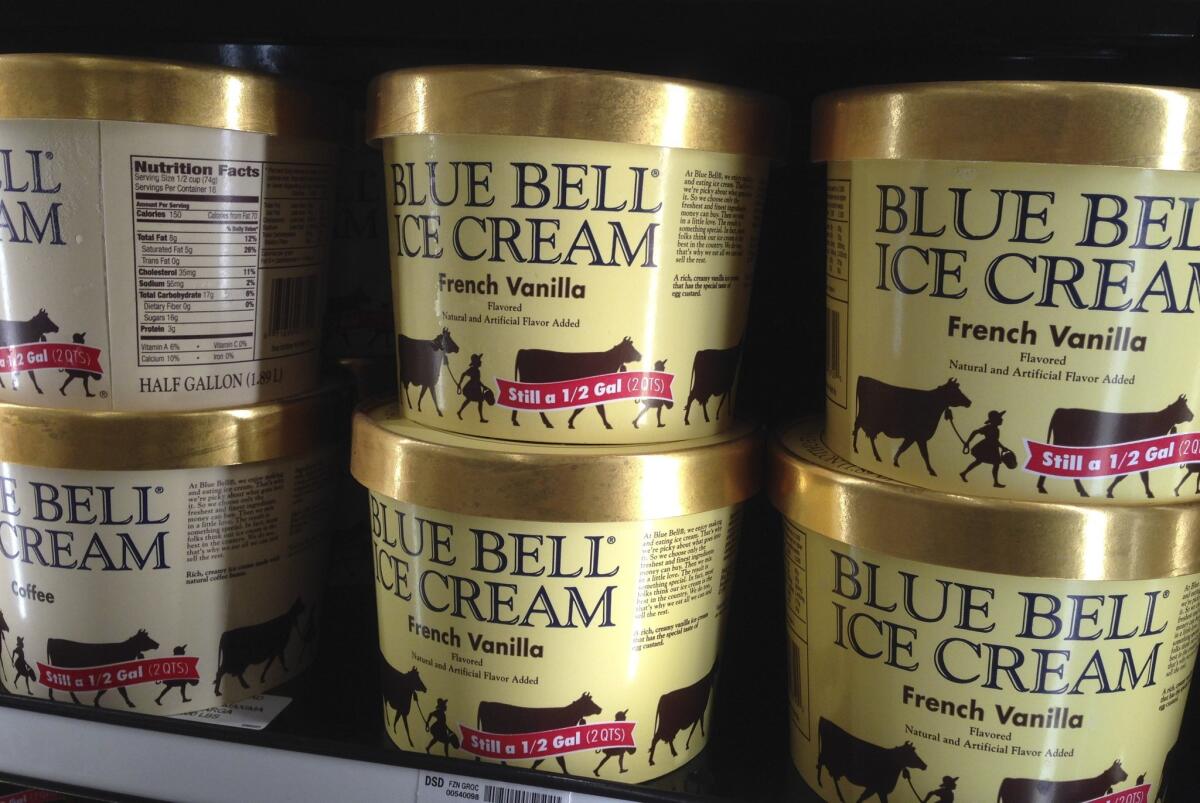More listeria illnesses linked to Blue Bell products after recall

- Share via
Federal officials have linked two more listeria illnesses to Blue Bell Creameries products, a day after the Brenham, Texas-based company issued a nationwide recall of all of its products due to an ongoing outbreak of the potentially fatal foodborne illness.
According to the Centers for Disease Control and Prevention, one person in Arizona and another in Oklahoma have been sickened by Listeria monocytogenes bacteria with DNA fingerprints matching those collected from Blue Bell product samples. Previously, three patients in Texas and five others in Kansas had been linked to the outbreak. All 10 patients were hospitalized, and three in Kansas died, officials said. The illnesses date as far back as January 2010.
Results from another patient with listeriosis are pending to determine whether the illness may be related to the outbreak, according to the CDC. “This is a complex and ongoing multistate outbreak investigation of listeriosis illnesses occurring over several years,” the CDC said in its latest report.
More Blue Bell-related listeria cases are likely on the horizon, according to Seattle-based foodborne-illness attorney Bill Marler.
Marler said he has been contacted by “dozens” of people who have been ill with gastrointestinal symptoms and have eaten Blue Bell products -- “but there is no way to link them legally. The only sure test is a blood test (or spinal fluid), and you need to be very sick for that usually.” He said he has also heard from several who have listeria infections “but have not yet been linked to Blue Bell genetically,” and that “there are a number of background listeria cases that may or may not be linked.”
“Listeria is an environmental pathogen that loves a cool, wet environment and grows very well at refrigerator temperatures,” Marler said. “That is why it’s such a problem in manufacturing facilities like meat, cheese, cantaloupe and now ice cream. Once it gets into a plant, it is very hard to get rid of.”
“What we know is that the problem has been going on in these [Blue Bell] plants for some time,” he said. “But for South Carolina doing an apparently random test on product in February, no one would have known about this at all.”
More to Read
Eat your way across L.A.
Get our weekly Tasting Notes newsletter for reviews, news and more.
You may occasionally receive promotional content from the Los Angeles Times.










